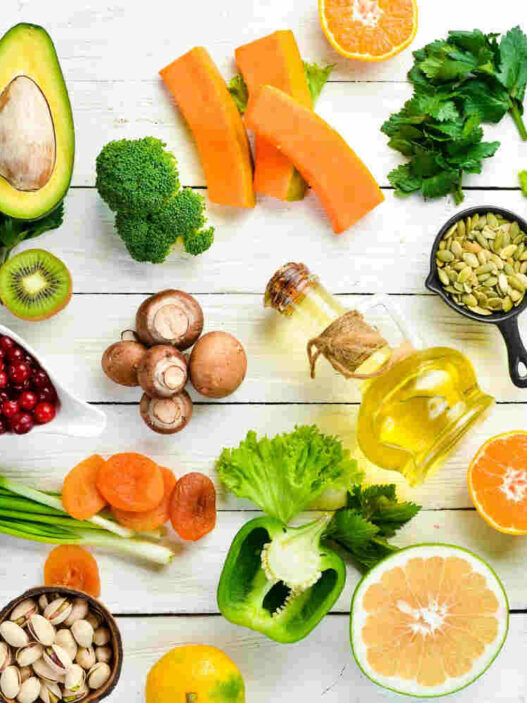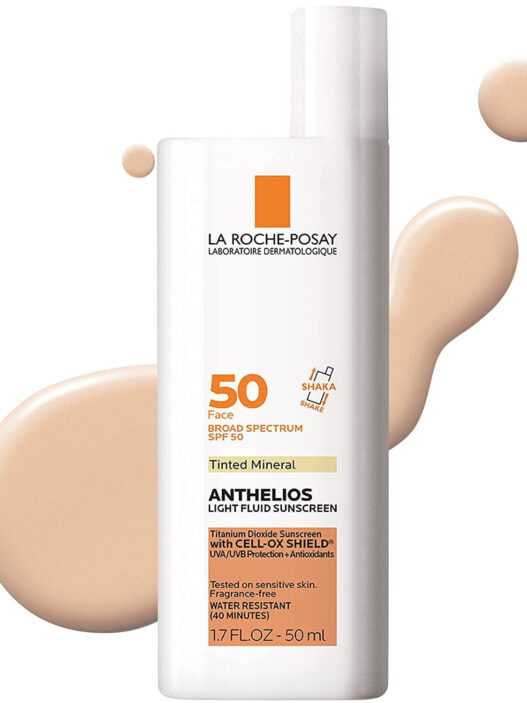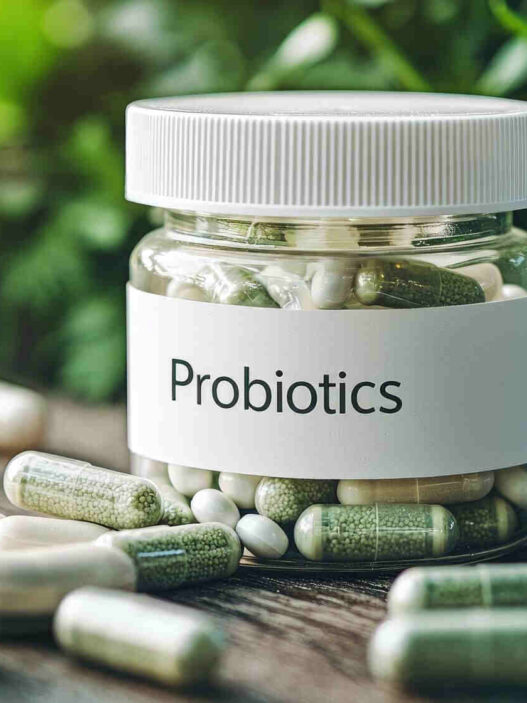Alani Nu (1) is a brand that is popular for its fat-burning effect and as an energy drink or pre-workout supplement that helps enhance athletic performance, strength, and attention. It was founded in the year 2018 by influencer and entrepreneur Katy Hearn. Alani nu energy drink and other health and pre-workout supplements such as protein bars, protein shakes, gummies, energy sticks, balance powder, whey protein, balance capsules, multivitamins, fat burner, etc. are manufactured by them. In this article, we will provide Alani nu energy drink reviews (1). Further, we will look at the ingredients and nutritional information of Alani nu energy drink, examine possible side effects, and make a critical analysis from a health perspective. In addition, we will also assess how much caffeine is present in Alani nu energy drink and whether it is within acceptable limits.
Alani nu energy drink (1) is gluten-free, sugar-free, vegan, and low in calories. This makes it suitable for those watching their calorie intake or trying to lose weight. Further, Alani nu uses naturally derived ingredients and nutrients in its flavors, which makes it appealing to many people.
Each can of Alani nu contains 200 mg of caffeine and B vitamins for an energy boost, but it is important to note that the caffeine content may be too high for some people.
It is, therefore, recommended to limit consumption of Alani nu energy drink to one can per day and monitor for any adverse side effects. This is because excessive caffeine intake can have negative health effects.
But before going deep into Alani nu energy drink reviews, we will discuss energy drinks and what role they play.
What are Energy Drinks?
Energy drinks (2) are beverages that typically contain a combination of ingredients intended to provide a temporary boost in energy, alertness, and mental focus. These drinks are designed to combat fatigue and increase physical and mental performance (3), especially when people need a quick energy boost.
Common Ingredients in Energy Drinks
Here are some key characteristics and common ingredients found in energy drinks:
Caffeine
Caffeine is the primary active ingredient in most energy drinks. Caffeine, being a natural stimulant, can increase alertness and reduce the perception of fatigue. Furthermore, caffeine enhances attention, concentration, and focus.
These effects are what make caffeine a pivotal ingredient in energy drinks, as they are designed to function as performance-enhancing beverages.
The caffeine content in energy drinks can vary widely, with some brands containing significantly higher levels than a cup of coffee.
Here, it is important to note that the FDA recommends a maximum caffeine intake of 400 mg per day for healthy adults (4).
Ginseng
Starting with ginseng, this East Asian herb is known for its potential to boost energy levels (5). However, it’s important to note that it has been shown to decrease exercise endurance. Moreover, due to its ability to lower blood sugar levels, individuals taking medication for diabetes should avoid it.
Taurine
Taurine, another key ingredient, is an amino acid that can increase athletic performance and metabolism. It is generally considered safe in doses of about 3,000 mg per day, but a 2021 review paper from Frontiers in Physiology (6) suggests that 6,000 mg daily may damage DNA.
B Vitamins
Energy drinks often contain B vitamins like B6 and B12. These vitamins, which are essential nutrients, play a role in energy metabolism (7), and their inclusion in energy drinks is meant to support the body’s energy production.
Sugar
Some energy drinks contain up to 62 grams of sugar — or 15 1/2 teaspoons —per 16-ounce can. That can easily add up to 250 calories per can. This is about as much as a 20-ounce bottle of Coke. And far more than the recommended daily sugar intake (8).
L-Carnitine
Another amino acid is L-Carnitine which supposedly increases endurance and promotes fat burning. Since we only need extra carnitine when we’re deficient (which is rare), taking more is pretty pointless. Less than 3 grams per day is generally considered safe; more can cause stomach upset and a fishy body odor, according to the National Institutes of Health (9).
Ginkgo Biloba
This herb, derived from the leaves of the ancient Chinese ginkgo tree, is said to combat mental fatigue and improve memory. However, research findings on these claims are conflicting. According to the National Center for Complementary and Integrative Health (10), research has linked ginkgo extract to thyroid and liver cancer in mice, but its effects on humans have not yet been established.
Green Coffee Extract
Made from unroasted coffee beans, the green coffee extract has no coffee flavor but still provides caffeine. Surprisingly, claims that the extract promotes weight loss have yet to be substantiated by research.
Guarana
This extract from the seeds of the South American guarana plant is a concentrated source of caffeine (11). Furthermore, claims that it promotes weight loss and combats fatigue are shaky at best.
Green Tea Extract
While studies confirm that it’s an excellent source of cancer-fighting antioxidants, there isn’t enough research to support claims that it can lower blood pressure or help with weight loss, according to the National Center for Complementary and Integrative Health (12).
Alani Nu Energy Drink Reviews as Pre-Workout or Fat Burner
Alani nu energy drink comes in boldly colored cans and has eye-catching names. It is a very popular energy drink among youngsters. The brand’s primary goal is to meet the wellness needs of individuals by providing a refreshing boost of energy without compromising health.
The drink contain 200 mg of caffeine and 0 sugar. They are low in calories and carbohydrates, making them a good alternative to sodas or sugary energy drinks.
Alani Nu energy drink comes in 15 different flavors, with interesting names that can brighten up anyone’s day-
- Witch’s brew
- Kiwi guava
- Cherry slush
- Cosmic stardust
- Breezeberry
- Watermelon wave
- Hawaiian shaved ice
- Mimosa
- Tropsicle
- Blue slush
- Dream float
- fruit blast
- Electric energy
- Juicy peach
- Kimade
How much Caffeine in Alani Nu?
Alani Nu energy drink contain 200 mg of caffeine, which is attributed to various positive effects, such as improving cognitive functions, increasing metabolism, and lowering the risk of certain diseases.
The 200mg of caffeine in Alani nu energy drink is fine and can be consumed by a healthy individual. This is because FDA recommends a maximum caffeine intake of 400 mg per day for healthy adults (4).
However, it’s important to take into consideration that the amount of caffeine in Alani energy drinks may be too high for some individuals, especially those who are suffering from cardiovascular diseases.
Alani Nu Energy Drink Ingredients Reviews
The per-serving ingredients in Alani nu energy drink label as per the official website (1) are as given below:
Ingredients |
Per Serving |
% Daily Value |
|
Calories |
15 | |
|
Total Fat |
0g |
0% |
|
Sodium |
200mg |
9% |
|
Total Carbohydrate |
6g |
2% |
|
Sugar Alcohol |
2g | |
|
Niacin (Niacinamide, Vitamin B3) |
16.8mg |
110% |
|
Vitamin B6 (Pyridoxine HCl) |
1.8mg |
110% |
|
Vitamin B12 (Cyanocobalamin) |
2.5mcg |
100% |
|
Biotin |
30mcg |
100% |
|
Pantothenic Acid (Pantothenate, Vitamin B5) |
5.3mg |
100% |
|
Other Ingredients |
Carbonated water, Citric acid, Erythritol, Taurine, Sodium citrate, Natural flavor, L-theanine, Sucralose, Panax Ginseng Root Extract, Sodium benzoate (as preservative), L-carnitine tartrate, Acesulfame potassium, Gum acacia, Glucuronolactone, Inositol, Guarana seed extract, Sodium chloride, Calcium D, | |
|
Caffeine |
200mg per 12oz serving | |
Calories and Macronutrients Reviews in Alani Nu Energy Drink
The calories vary from 10 to 15 kcal, depending upon the flavor of the drink. Like Witch’s brew has 15 kcal. On the other hand, Kiwi guava has 10 kcal per serving.
Further, Alani Nu energy drink contains around 6 grams of carbs, 0 grams of fat, 0 grams of Proteins, and 200 milligrams of Sodium.
Vitamin B complex (100% of the daily value for each) in Alani Nu Energy Drink
It also contains a complex of B vitamins:
- Vitamin B3 (Niacin)
- Vitamin B5 (Pantothenic Acid)
- Vitamin B6 (Pyridoxine)
- Vitamin B7 (Biotin)
- Vitamin B12 (Cyanocobalamin)
B Vitamins
B vitamins play an important role in maintaining health and well-being. As the building blocks of a healthy body, B vitamins have a direct impact on your energy levels, brain function, and cellular metabolism.
Vitamin B (13) plays a fundamental role as a coenzyme (14), in enzymatic reactions of energy metabolism where they help Carbs, Protein, and Fats to convert into Energy.
Besides turning food into energy, they are needed in many places inside our body to keep our cells functioning.
Vitamin B is also used to create Neurotransmitters: like Dopamine, serotonin, and GABA (gamma-aminobutyric acid).
Niacin
Niacin or Vitamin B3 plays a key role in energy production and metabolism. It helps maintain healthy skin, supports the digestive system, and has been used to manage cholesterol levels.
Pantothenic acid
Pantothenic acid or Vitamin B5 is essential for the synthesis of fatty acids and cholesterol. It’s involved in the production of red blood cells (15) and the breakdown of carbohydrates and fats.
Vitamin B6 and B12
These B vitamins play crucial roles in energy metabolism. They are essential for converting food into energy, making them valuable additions to the drink’s formulation.
Pyridoxine
Vitamin B6 (Pyridoxine) is important for brain development and function. It helps the body produce neurotransmitters (chemical messengers in the brain) and supports the immune system.
Biotin
Vitamin B7 or Biotin (16) is essential for the metabolism of carbohydrates, fats, and amino acids. It is often associated with healthy hair, skin, and nails.
Cobalamin
Vitamin B12 (cobalamin) is necessary for the formation of red blood cells and DNA synthesis. It plays a vital role in maintaining healthy nerve cells and supports brain function. Vitamin B12 (17) is primarily found in animal products, so vegetarians and vegans may need to supplement their diets.
Reviews on Alani Nu Energy Blend
Apart from the above ingredients, Alani nu energy drink also contains an energy blend (1.4 gms) where the exact quantities of ingredients are not known.
- 200 mg of caffeine
- L-Theanine
- Taurine
- Panax Ginseng Root Extract
- L-Carnitine Tartrate
- Glucuronolactone
- Inositol
- Guarana Seed Extract
This blend of ingredients improves workout performance, increases energy, boosts metabolism, enhances cognitive abilities, and promotes better overall health.
Caffeine
Alani Nu’s energy comes from 200mg of caffeine per can, sourced from natural green coffee beans. This moderate caffeine content is ideal for those seeking a boost without excessive jitters or crashes.
L-Theanine
Known for its calming properties, L-theanine is an amino acid that complements caffeine by reducing its potential side effects, such as anxiety and restlessness.
Electrolytes
Alani Nu Energy Drink contains electrolytes like sodium and potassium to help maintain hydration and support muscle function.
Adaptogens
Some flavors incorporate adaptogenic herbs like Ashwagandha or Rhodiola, which are believed to help the body adapt to stress and promote balance.
What’s notably absent from the ingredients list are artificial colors, flavors, and sweeteners. Alani Nu energy drink opts for a natural approach, using Stevia and erythritol for sweetness.
Alani Nu Energy Drink Reviews On its Taste
One of the critical factors that determine the success of an energy drink is its taste. Let’s see how Alani Nu Energy drink fares on its taste test. Alani Nu offers a variety of flavors, from fruity to exotic, ensuring there’s something for every palate.
Fruity Bliss
The “kiwi guava (1) and cherry slush (1)” flavor is reminiscent of the sweet, fruity confectionery it’s named after. It boasts a vibrant, playful taste profile that’s both refreshing and satisfying.
Sophisticated Zing
On the other hand, “Mimosa” (1) takes a more mature approach, delivering the taste of a classic brunch beverage with its citrusy notes and a hint of bubbly effervescence.
Refreshing Tropics
Another flavor called “Hawaiian Shaved Ice” (1) brings a tropical paradise to your taste buds, offering a blend of exotic fruit flavors that evoke images of sandy beaches and azure waters.
Tropical Tang
“Breezy Berry” (1) takes you on a vacation with its tropical fruit punch taste, complete with hints of coconut and pineapple.
Taste Verdict
Alani Nu’s Energy Drink does a remarkable job of combining clean, natural ingredients with delicious flavors. Whether you prefer sweet, fruity notes or something more sophisticated, there’s a flavor for you.
How Does Alani Nu Energy Drink Make You Feel?
Upon sipping your chosen flavor, you’ll experience a gradual and steady increase in alertness. This gradual rise in energy is partly thanks to the inclusion of L-Theanine (18), which tempers the caffeine’s effects. You won’t experience the sudden jolt of energy or subsequent crash that’s common with many high-caffeine energy drinks.
What’s particularly appealing about Alani Nu Energy Drink is its suitability for various occasions. It’s an excellent pre-workout pick-me-up, providing the focus and energy needed for an effective gym session without causing digestive discomfort or jitters. Similarly, it’s a great choice for long workdays or when you need a mental boost without the sugar-laden alternatives.
Furthermore, the absence of artificial sweeteners contributes to a cleaner, more refreshing feeling. There’s no cloying aftertaste or excessive sweetness that can leave you reaching for water to cleanse your palate.
Moreover, Alani Nu’s emphasis on wellness extends to its inclusion of adaptogens in some flavors. These natural compounds are believed to help the body adapt to stressors. While the effects of adaptogens can vary from person to person, many users report feeling more balanced and resilient after consuming these particular varieties.
The energy boost from Alani Nu Energy Drink lasts for several hours, making it an excellent choice for tasks that require sustained focus. It’s also suitable for social gatherings, where you want to stay alert and engaged without the overstimulation associated with stronger energy drinks.
Alani Nu Energy Drink Can – Information on the Label
Content
One can of Alani Nu Energy Drink contains 355 ml or 12 ounces, and there are 12 cans in a package.
Taste
A lightly carbonated drink with no sugar (artificial sweetener) in many “cheat day” flavors.
Promise
An energy drink that will keep you feeling and looking your best, even on the busiest of days.
Where to buy it?
Alani Nu Energy Drink can be purchased from Amazon or directly from Alani’s website (1).
Is it safe to consume Alani Nu energy drink?
Based on the ingredients, Alani Nu Energy Drink is safe for healthy adults to consume. However, it is advisable to consult your healthcare provider before consuming any energy drink or health supplement. Your healthcare provider will determine if it is safe for you.
Alani Nu does not recommend its energy drinks for children, pregnant/breastfeeding women, or people who are sensitive to caffeine.
Further, it’s important to note that while energy drinks in general can provide a temporary energy boost, they also have potential downsides and risks. Excessive consumption of caffeine and sugar can lead to adverse effects, including increased heart rate, anxiety, insomnia, and obesity.
Additionally, mixing energy drinks with alcohol is a dangerous practice that can mask the depressant effects of alcohol, potentially leading to risky behaviors and alcohol poisoning.
Reviews and Experience of Alani Nu Energy Drink by Other Consumers
The reviews and experience with Alani Nu Energy Drinks are generally very positive. Many say it is the best energy drink they have ever tried.
Furthermore, they like the unique flavors, the energy boost, and the lack of jitters and crashes.
Other than the above, some people also experience benefits for the skin (vitamin B5).
Overall, Alani Nu Sugar-Free Energy Drink gets a 4.9 out of 5 stars rating on Amazon.
Price Of Alani Nu Energy Drink
The Price of Alani Nu Energy Drink ranges from 10-65 $ on Amazon depending upon the number of drinks/ flavors you buy.
Alani Nu Energy Drink Reviews – Pros & Cons
Pros
Clean Ingredients
Alani Nu Energy Drink stands out for its commitment to clean, natural ingredients, avoiding artificial additives commonly found in other energy drinks.
Smooth Energy
The combination of caffeine and L-Theanine delivers a smoother, more sustainable energy boost, reducing the chances of jitters and crashes.
Variety of Flavors
With a wide range of appealing flavors, there’s something to suit every taste preference.
Transparent Labeling
Alani Nu provides information about the ingredients and nutrition of their products, promoting transparency and trust.
Adaptogenic Options
The inclusion of adaptogens in some flavors adds an extra layer of potential wellness benefits.
Cons
Price Point
Alani Nu Energy Drink may be costlier than conventional energy drinks.
Limited Availability
Depending on your location, finding Alani Nu products in physical stores can be a challenge, making online ordering might be the primary option. Also, most of the time it’s unavailable on its website.
Caffeine Content
The caffeine content may not be suitable for some individuals and may even be harmful.
Alani Nu vs Other Energy Drinks
To know Alani Nu Energy Drink Place in the market, it’s worth comparing it with other popular brands:
Alani Nu vs Red Bull
While Red Bull is a very popular energy drink brand, it contains 51 grams of added sugar (101% of the recommended one) for a 16 oz can. On the other hand, Alani Nu has zero sugar. The sweetness in this energy drink comes from the two grams of sugar alcohol and Sucralose. This can result in a more significant energy spike followed by a crash.
Alani Nu v/s Monster Energy
Monster energy drink contains 160 mg of caffeine and 54 grams of added sugar (108% of suggested intake) per 16 oz. It’s popular among those seeking an intense energy boost for long nights or demanding physical activities.
However, its high caffeine content and added sugar may not align with wellness-focused consumers. Along with that, it towers over the recommended vitamin and mineral requirements. Monster Energy Drink contains 240% of Vitamin B6, 500% of Vitamin B12 and 250% of Niacin.
Alani Nu vs Zoa
Zoa is Dwayne Johnson’s energy drink. It contains 160 mg of caffeine and zero grams of sugar per 16 oz. The sweetness in Zoa comes from Sucralose and Acesulfame Potassium. It has the exact amounts of recommended Vitamin B6 (100%), Vitamin B12 (100%) and Niacin (100%) levels.
Alani Nu vs G Fuel
G FUEL is marketed as a gaming energy drink and contains 140 mg of caffeine per 16 ounces. It’s known for its wide array of flavors and the absence of sugar. However, it may not appeal to those seeking adaptogens and a focus on overall well-being.
Verdict
In a market flooded with energy drinks laden with artificial additives and excessive caffeine, Alani Nu Energy Drink offers a breath of fresh air. It stands as a testament to the power of wellness, providing clean energy without unwanted side effects. Moreover, with its array of delicious flavors, adaptogenic options, and transparent labeling, it’s an attractive choice for those who value both taste and health.
Alani Nu Energy Drink isn’t just about a momentary energy boost. It’s about supporting your well-being throughout the day. While it might be pricier than some competitors, the quality and clean ingredients justify the investment for many consumers.
If you’re tired of the typical energy drink rollercoaster ride and seek a product that aligns with your wellness goals, Alani Nu Energy Drink is certainly worth a try.
With a diverse range of flavors and a focus on clean energy, it’s a refreshing addition to the energy drink landscape.
Sources
- https://www.alaninu.com/
- https://www.nccih.nih.gov/health/energy-drinks
- https://www.reliasmedia.com/articles/77975-energy-drinks-to-improve-performance
- https://www.fda.gov/consumers/consumer-updates/spilling-beans-how-much-caffeine-too-much
- https://www.nccih.nih.gov/health/asian-ginseng
- https://www.ncbi.nlm.nih.gov/pmc/articles/PMC8419774/
- https://journals.sagepub.com/doi/pdf/10.1177/147323000703500301
- https://www.heart.org/en/healthy-living/healthy-eating/eat-smart/sugar/added-sugars
- https://ods.od.nih.gov/factsheets/Carnitine-HealthProfessional
- https://www.nccih.nih.gov/health/ginkgo
- https://www.nccih.nih.gov/health/energy-drinks
- https://www.nccih.nih.gov/health/green-te
- https://www.sciencedirect.com/science/article/abs/pii/S0765159721000411
- https://www.sciencedirect.com/topics/medicine-and-dentistry/coenzyme
- https://pubmed.ncbi.nlm.nih.gov/7562094/
- https://www.medicalnewstoday.com/articles/287720
- https://pubmed.ncbi.nlm.nih.gov/15189115/
- https://pubmed.ncbi.nlm.nih.gov/18681988/
Affiliate Disclosure – Many products or services or content featured on this website are advertising which means we get a commission if purchases are done through links on our website. Further, we disclose that some of the links in the above post may be sales or affiliate links, and we might receive compensation if you click on them to purchase through them. We do not endorse the advertisements or product reviews published on our website.
Disclosure – The products/services belong to a third party, and we have neither used nor endorsed any products/services and we may even get compensation for publishing it. Hence, we disclaim any and all liability to any party, person, company, or product for any direct, indirect, implied, punitive, special, incidental, or consequential damages arising either directly or indirectly due to the use of content published in this article. The publishers of this website take no responsibility for any health issues, personal injury, death, disability, or any other harm due to the content on our website or any advice or opinion expressed on our website. Please consult your healthcare professional before consuming any supplement or using any product kit/treatment. Please also read our medical disclaimer.











